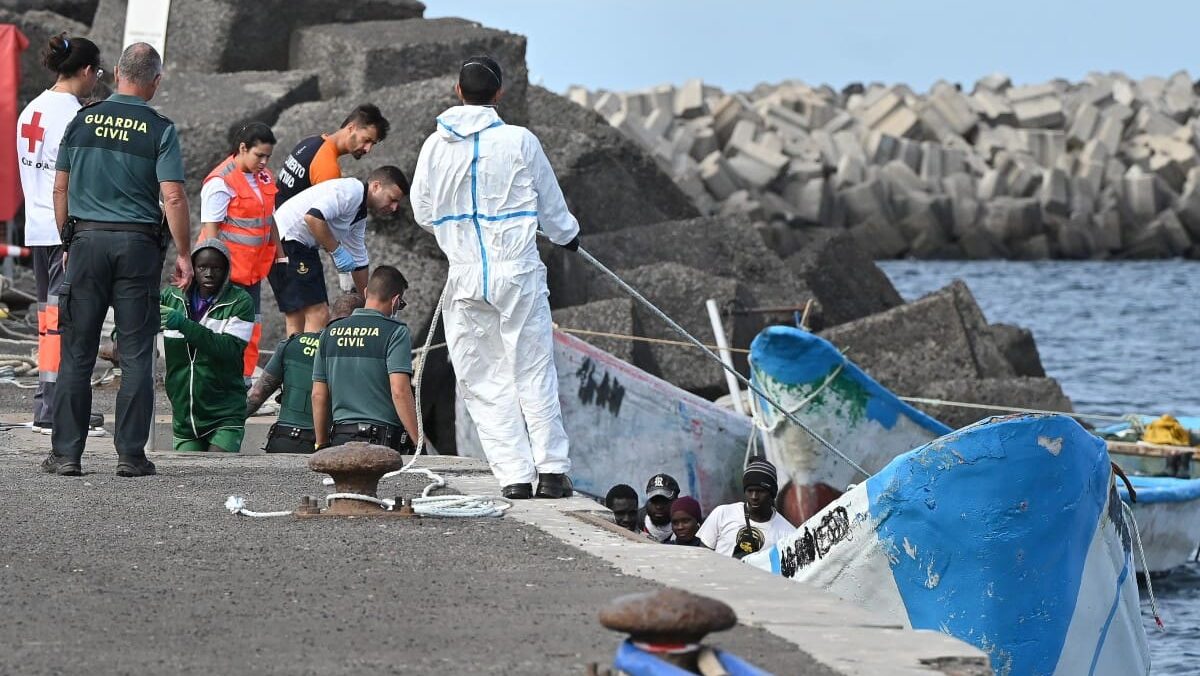No products in the cart.

Photo: STRINGER / AFP
In Spain, the tension between the national conservative VOX and the center-right Partido Popular (PP) has reached new heights and a possible breaking point, as VOX threatens to pull out of regional governments with the PP if the latter accepts a proposal to redistribute unaccompanied minor migrants across Spain.
The question at hand is the redistribution of unaccompanied minor migrants from the Canary Islands to the mainland. The exponential influx of migrants to Spain this year has brought the system’s reception centers to overflowing, particularly youth centers.
The central government, currently held by a left-wing coalition under the leadership of Socialist Prime Minister Pedro Sánchez, has been begging the regional governments to accept an increasing number of transfers from the Spanish archipelago near the East African coast. But he finds himself in a weak position with many regions as both the Partido Popular and VOX made significant gains in regional elections over the last few years. In five regions, the PP and VOX have formed coalition governments and in one, the Partido Popular governs alone, but with VOX’s support.
The central government is meeting on Wednesday with the regional presidents in the hope of convincing them to accept more young migrants into their group homes for youth.
At an event on Wednesday afternoon in the Basque region of Spain, PP president Alberto Nuñez Feijóo announced that the PP regional governments had indeed agreed to accept the transfer of 400 migrant youth to each of the regions governed by the PP.
Santiago Abascal, president of VOX, had made it clear in the days leading up to the meeting that if PP regional presidents acquiesced to the central government’s plan, his party would break with the PP, potentially collapsing their regional coalitions. This could lead to votes of no confidence and send the PP scrambling for support from Sánchez’ socialists in regional governments.
“We will consider all regional coalitions broken, because there is no other choice, where the regional presidents do not use all political and legal means possible to avoid the distribution of MENAS [Spanish acronym for unaccompanied foreign minors] through our streets, through our towns and our cities,” Abascal warned on Monday. “We will not be complicit in robberies, machete fights, or rapes.”
Pepa Millan, spokesperson for the VOX parliamentary group in the Congress of Deputies, insisted in a press conference on Tuesday that if the regional PP presidents resist pressure from the central government, they will retain the support of VOX.
“If they give in to Sánchez’s pressure, decide to defraud voters and become collaborators in insecurity, we will consider those governments broken,” she said.
The PP has described VOX’s stance as blackmail. PP spokesperson Borja Semper said on Tuesday that his party is a “party of solidarity” but that it is not going to say “yes to everything” the government is asking.
“The PP’s position is solidarity but not irresponsibility,” he said.
“Threats with Feijóo do not work,” Semper said in reference to the PP president Feijóo.
He did not reveal how the PP regional presidents would vote and emphasized that they had outstanding questions regarding the government’s plan, including financing and specifics on the conditions of the transfers. He also said that they would insist that all regions participate, a reference to the round refusal of Catalonia to accept more migrants.
All the details of what the PP regional presidents agreed to have not been announced, but on Wednesday, Fejóo said his party had gotten the central government to agree to equip additional facilities for the migrant minors in cases where interior infrastructure was overloaded. He also noted that transfers had already occurred and VOX had not protested.
The political agreements between the two parties included a condition from VOX to fight against illegal immigration. In the last few days, regional PP leaders have been critical of the government’s management of the immigration crisis. Both the PP and VOX have called on the central government to implement a sea blockade to stem the inflow of migrants across the Atlantic from Africa to Spain’s Canary Islands.